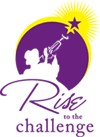 Over twenty years ago, when I was about to move to New Orleans, a coworker said I just had to read A Confederacy of Dunces because it was just great and really, really funny.
Over twenty years ago, when I was about to move to New Orleans, a coworker said I just had to read A Confederacy of Dunces because it was just great and really, really funny.
I didn't read it then. I'd hear about it from time to time, chiefly as a sad anecdote, since the author (John Kennedy Toole) committed suicide before his manuscript ever saw print and was awarded the Pulitzer Prize posthumously. His mother kept asking Walker Percy to read her son's manuscript until he relented, liked the book, and sent it along to his publisher. Toole died in 1969; the book was first published in 1980.
So here I am about to go to New Orleans for a meeting, and I thought: why not? So I picked up a copy. (Mine came from a used book store so it looked like the one on the upper right, but you can also get a newer edition, like the picture on the lower left.)
Well, I tell you, it's not necessarily the sort of book that will charm every reader. (What is?) Its humor reminds me of some of the other great comic/social/political novels of around that time -- say, Vonnegut and Catch-22.
The central character is Ignatius J. Reilly, a lazy, self-righteous, prudish, gluttonous young man who is dependent on his mother and doesn't treat her well. He fancies himself a great intellectual -- he did, after all, get a master's degree in just four years -- and spends long hours in his bedroom writing screeds in Big Chief tablets that are scattered on the floor. He has only left New Orleans once, for a job interview at LSU that turned out to be quite traumatic. Through a series of unfortunate events, he is forced to find employment.
The book has lots of clever plot twists, bringing together a large cast of eccentric characters against the backdrop of New Orleans. At the time when it was written, it must have seemed much bolder and more risque than it does now. Ignatius J. Reilly's great political inspiration is a political party of homosexuals, who (he believes) would be too concerned with other things to bother going to war. The gay men and lesbians in the book are not portrayed in a flattering light -- but, by golly, they're treated as respectfully as everyone else and seem better than many of the other characters.
One piece of New Orleans color that I enjoyed was Toole's ear for dialect -- as I was reading, I could almost hear Ignatius's mother talking to her friend. (I'm a sucker for New Orleans accents -- and I do mean accents, plural: there are several!)
One fan of the book has developed Confederacy of Dunces: A Virtual Tour. Take a look: it's a nice sampling of New Orleans sights.
PS I saw a comment on Democratic Underground signed by "Myrna Minx" and smiled at the homage to a character in the book, Myrna Minsk (whom Ignatious calls Minx) who is, for most of the novel, off in New York, wearing black, smoking cigarettes, going to group therapy, and writing Ignatious letters about sexual fulfillment.
PPS I'm sorry for the trial practice posts that sometimes show up here. I have a couple of blogs; "AALL Second Line Blog" comes before "Trial Ad Notes" alphabetically and if I'm not paying attention my posts get misdirected.
31 May 2007
A Confederacy of Dunces
Posted by
Mary Whisner
at
5:28 PM
![]()
Labels: Books, New Orleans
Subscribe to:
Post Comments (Atom)

No comments:
Post a Comment